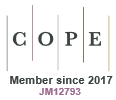Upcoming Research Fronts and Special Issues
We are publishing the following upcoming projects in Environmental Chemistry:
Soil amendment for sustainable agriculture
Guest Editor
Prof. Ke Sun (Beijing Normal University, China)
Many soil amendments such as biochar (a pyrogenic carbon produced by the pyrolysis of biomass under an oxygen-limited environment), nanoparticles (e.g., nano-fertilizer), sludges, and composts, have been developed. Recent studies have demonstrated various benefits and potential hazards and risks produced by using soil amendments. Submitted papers must be largely within the journal scope and can cover topics that include, but are not limited to:
- Carbon sequestration;
- Changes in nitrous oxide, methane or other emissions;
- Changes in nutrient mobilization and subsequent effects;
- Increase in crop yield and the mechanisms by which this occurs ;
- Modification of soil microbial communities;
- Remediation of polluted soils;
- Improvement in soil fertility.
With the wide application in soils, the potential risks brought by soil amendments should also be addressed.
This Research Front welcomes contributions on the above topics on positive and/or negative impacts of soils amendments in different soil environments. Submissions must have a strong base in environmental chemistry, but interdisciplinary papers are welcome.
Submission deadline: 31 September 2022
The submission may be either a full paper or a focused review paper on some aspect of the subject. Submissions will undergo the usual rigorous peer-review process and will be published Online Early as they are accepted. Please contact Ke Sun for additional information or questions.
Mercury’s cycling and fate in a changing climate
Guest Editors:
Dr. Jing Ming (Beacon Science & Consulting, Australia)
Prof Qianggong Zhang (Institute of Tibetan Plateau Research, Chinese Academy of Sciences, China)
Mercury, the only common metal that is liquid at room temperature, can exist in the gaseous form, which allows its global transport. Emissions can be either natural or anthropogenic. The released Hg then transports within, and exchanges between, all environmental compartments including air, water, soils, sediments, and biota. Furthermore, Hg can also exist and cycle between various chemical forms. These forms can exhibit different values for volatility, reactivity, and toxicity. Mercury is therefore a global pollutant with extremely complex behaviour and effects, thus representing major concerns for the environment and human health.
As per the Intergovernmental Panel on Climate Change report in 2021 (AR6), global surface temperature was 1.09 °C higher in 2011–2020 compared with 1850–1900 and is projected to rise further. Mercury’s behaviour and cycling is expected to modify with these changes in environment. For instance, atmospheric temperature affects Hg’s oxidation rate and its behaviour such as deposition, melting of the cryosphere to release and mobilize legacy Hg, and wildfires that are expected to become more intense thereby all contributing to the release of an increased amount of Hg into the environment. Mercury accumulation in ecosystems and its subsequent risks to biota and human health will likely be exacerbated. The detailed macroscopic and microscopic processes of the Hg biogeochemical cycle in a changing climate warrant further study. Increased Hg concentrations, and altered speciation, transport and accumulation raise concerns for both ecological and human health.
This special issue of Environmental Chemistry will encompass laboratory, field and modelling studies and include, but are not limited to, the topics below:
1. Mercury’s behaviour and fate in the changing environment, including chemical and microbial processes.
2. Mercury’s transfer and exchange among various environmental compartments, specifically interfacial transport, and the outflow and inflow fluxes of Hg between geochemical spheres.
3. Changes in the biogeochemical cycling of Hg resulting from climate change, including contemporary assessments, prediction under future scenarios, and implications for the future.
Submission deadline: 28 February 2023
The submission may be either a full paper or a focused review paper on some aspect of the subject. Submissions will undergo the usual rigorous peer-review process and will be published Online Early as they are accepted. Please contact Jing Ming for additional information or questions about this special issue.


